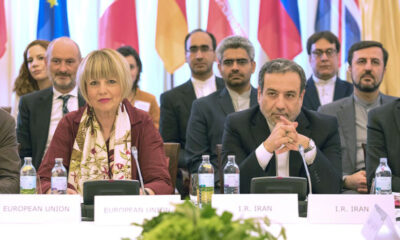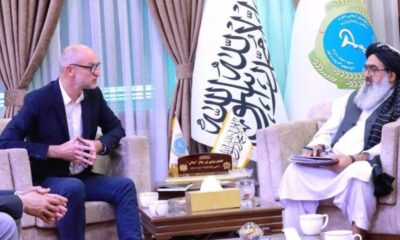Science & Technology
What happened to shut down Toyota’s production in Japan?

Toyota Motor (7203.T) was ramping back production at its Japan-based factories on Wednesday after a computer system processing orders for vehicle parts broke down on Tuesday, forcing the closure of 14 assembly plants.
The disruption shut down a system that is at the core of Toyota’s lean manufacturing, a way of reducing inventory and maximizing production efficiency that the Japanese automaker pioneered and its rivals have widely adopted.
It’s not clear what caused the system outage, and Toyota has not provided details on what went wrong. The company said the cause was not a cyberattack, Reuters reported.
In February last year, Toyota also had to shut down the same 14 factories in Japan when one of its suppliers, Kojima Industries, which supplies plastic parts and electronic components to Toyota, said one of its file servers had been infected with a virus that carried an undisclosed threatening message.
That attack raised questions about the cybersecurity of Japan’s supply chain.
Toyota’s production has been recovering this year, so the outage could be potentially more costly than the 2022 shutdown.
Toyota’s domestic output was up 29% in the first half of this year, the first such increase in two years. Toyota makes a full range of vehicles in Japan from the budget Yaris to its most expensive models, including luxury Lexus brand cars.
Toyota’s production in Japan – about a third of its global output – averaged about 13,500 vehicles a day in the first half of the year, Reuters calculations showed. That excludes vehicles from group automakers Daihatsu and Hino.
Its average global vehicle sale price in the most recent quarter was equivalent to $26,384, based on its financial reporting. Using that as a proxy would mean a full-day of production at the 14 plants would be equivalent to $356 million in revenue.
Toyota has not said how or whether it will look to recoup the lost output.
Toyota essentially invented modern auto assembly with its “kanban” system for notifying suppliers of what parts are needed where and when to minimize inventory.
“Kanban” means signboard in Japanese, and the Toyota engineer and later executive, Taichi Ono, who developed the system drew inspiration from watching an American supermarket chain, Piggly Wiggly, manage its shelf stock on a trip to the United States in the 1950s.
Toyota’s system of lean production and just-in-time parts delivery has been adopted across the auto industry and widely studied. It shifted from a system of printed cards that managed supplier workflow to an internet-based “e-kanban” system more than 20 years ago.
Toyota’s kanban system, which relies on simple visual cues to organize workflow, has been adopted for other industries, including software development.
Koji Sato took over from Toyota Chairman Akio Toyoda as CEO in April.
Science & Technology
Saudi crown prince launches new company to develop AI technologies
U.S. President Donald Trump travels to Saudi Arabia this week, the first stop on his Gulf tour, and AI is expected to be a major discussion point during Tuesday’s joint Saudi-U.S. investment forum in Riyadh.

Crown Prince Mohammed bin Salman launched a new company to develop and manage artificial intelligence technologies in Saudi Arabia on Monday, a top priority of its economic diversification drive, Reuters reported.
U.S. President Donald Trump travels to Saudi Arabia this week, the first stop on his Gulf tour, and AI is expected to be a major discussion point during Tuesday’s joint Saudi-U.S. investment forum in Riyadh.
The kingdom, the world’s biggest crude exporter, is undergoing a significant economic and social transformation under its Vision 2030 programme which aims to wean the economy off its oil dependency.
It wants to develop AI technology and infrastructure – including data centres – and has ambitions to establish the kingdom as a global centre for AI, pitching itself as a prospective hub for AI activity outside the United States, read the report.
Chaired by bin Salman, Saudi Arabia’s de facto leader, the new company, Humain, will operate under the Public Investment Fund, and offer AI services and products, including data centres, AI infrastructure, cloud capabilities and advanced AI models, the state news agency reported.
Earlier this year, cloud software seller Salesforce (CRM.N), said that it planned to invest $500 million in Saudi Arabia related to artificial intelligence.
Science & Technology
Skype ends operations after 22 years of service
Microsoft acquired Skype in 2011 and says the decision is part of a strategy to focus on its other platform, Microsoft Teams.
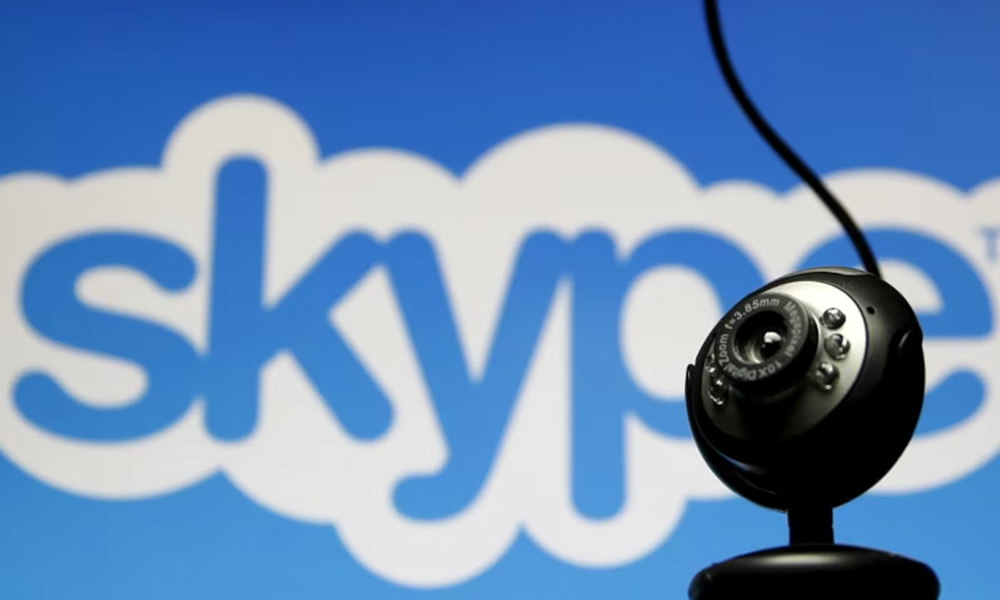
Skype officially shut down on Monday. The closure comes after nearly 22 years in operation, during which Skype became known for making international voice and video calls accessible and affordable for millions of people worldwide.
Microsoft acquired Skype in 2011 and says the decision is part of a strategy to focus on its other platform, Microsoft Teams.
Launched in 2003, Skype quickly became a revolutionary tool for free voice and video calls over the internet, amassing more than 300 million monthly users at its peak in the mid-2010s. The free platform changed how people communicated across borders, long before Zoom or FaceTime.
In 2011, Microsoft acquired Skype for $8.5bn, aiming to make it a central part of its communications strategy. But as competitors like WhatsApp, Zoom, and eventually Microsoft’s own Teams gained traction, Skype’s popularity faded.
On February 28, Microsoft said it would retire Skype on May 5 to streamline its services and prioritise Teams for communication and collaboration.
Microsoft has urged users to transition to Teams by visiting skype.com and utilising the “Start using Teams” feature. All Skype chats and contacts will remain accessible through Teams using the same login credentials.
Science & Technology
Apple moving to make most iPhones for US in India rather than China

Apple aims to make most of its iPhones sold in the United States at factories in India by the end of 2026, and is speeding up those plans to navigate potentially higher tariffs in China, its main manufacturing base, Reuters reported.
The U.S. tech giant is holding urgent talks with contract manufacturers Foxconn and Tata to achieve that goal, the person, who declined to be named as the planning process is confidential, said on Friday.
Apple and Foxconn did not immediately respond to requests for comment, while Tata declined to comment.
Apple sells over 60 million iPhones in the U.S. annually with roughly 80% of them made in China currently.
Prime Minister Narendra Modi has in recent years promoted India as a smartphone manufacturing hub, but higher duties on importing mobile phone parts compared to many other countries means it is still expensive for companies to produce in India.
For iPhones, manufacturing costs in India are 5-8% higher than in China, with the difference rising to as much as 10% in some cases, the source said.
Apple has already stepped up production in India to beat U.S. President Donald Trump’s tariffs, shipping some 600 tons of iPhones worth $2 billion to the United States in March. The shipments from India marked a record for both its contractors Tata and Foxconn, with the latter alone accounting for smartphones worth $1.3 billion, Reuters reported last week.
In April, the U.S. administration imposed 26% duties on imports from India, much lower than the more than 100% China was facing at the time. Washington has since paused most duties for three months, except for China.
Trump’s administration has since signalled openness to de-escalating the trade war between the world’s two largest economies that has raised fears of recession.
The Financial Times first reported about Apple’s plan on Friday.
As Apple diversifies its manufacturing beyond China, it has positioned India for a critical role. Foxconn and Tata, its two main suppliers there, have three factories in all, with two more being built.
-
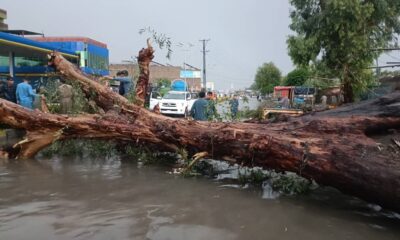
 Latest News5 days ago
Latest News5 days agoOne dead, dozens injured as powerful storm strikes Jalalabad, Afghanistan
-
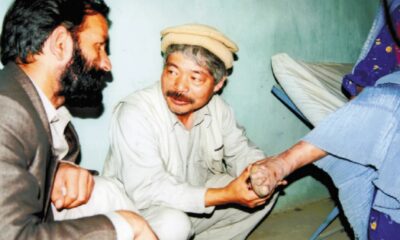
 Health5 days ago
Health5 days agoJapanese charity Peshawar-Kai to resume leprosy treatment in Afghanistan
-

 Latest News5 days ago
Latest News5 days agoEx-Afghan deputy speaker Qadeer back in Kenyan court for criminal case
-

 Sport5 days ago
Sport5 days agoIndia suspends Indian Premier League T20 cricket tournament
-

 Latest News4 days ago
Latest News4 days agoPakistan says India launched attack on Afghanistan, India denies
-

 Latest News5 days ago
Latest News5 days agoMCC Chief: Afghan cadres sent to China for AI training
-

 World4 days ago
World4 days agoUS offers to help India and Pakistan start talks, G7 also urges dialogue
-
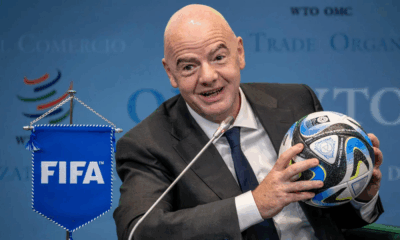
 Sport4 days ago
Sport4 days agoFIFA OKs creation of Afghanistan women’s refugee team


